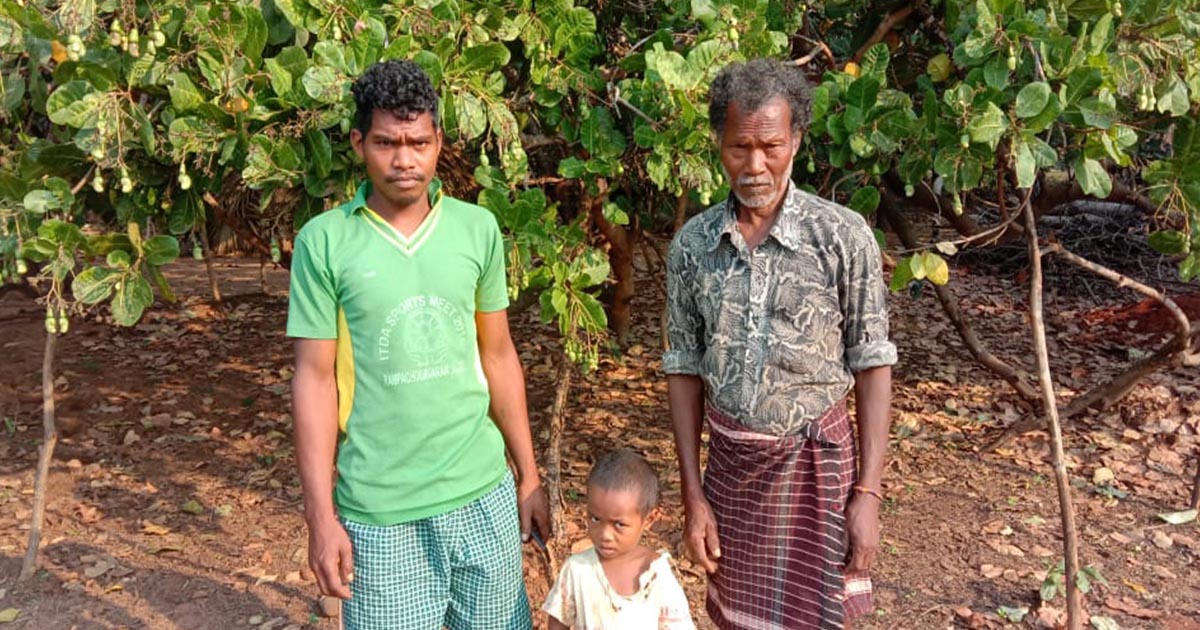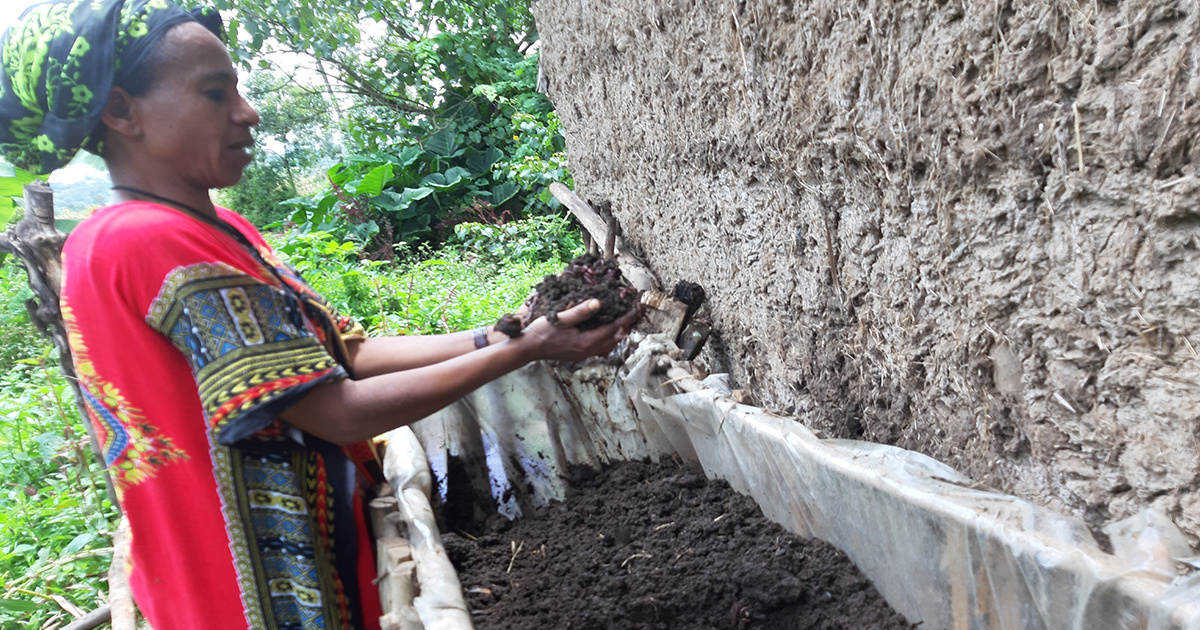Updated 16th June 2020.
Digital Green has been closely following the effects of COVID-19 on farmer livelihoods and resilience, food security, agricultural market systems in order to adapt digital extension approaches to best support beneficiaries under these unprecedented circumstances. While this pandemic presents many challenges, it also creates an opportunity for digital extension to continue to serve farmers and be adapted to support public health responses and new agricultural needs that arise. Digital Green staff have been in close communication with stakeholders on the ground to understand their concerns and adapt digital technologies to their current needs under COVID-19. Furthermore, Digital Green’s Feed the Future Developing Local Extension Capacity (DLEC) project organized a webinar on extension and advisory services’ role in crises and emergencies, including COVID-19. Digital Green blogs are showcasing specific actions that Digital Green has already taken to support beneficiaries during COVID-19.
Below we have listed a compendium of resources addressing agricultural challenges surging under this pandemic and responses from various actors.
Impact on Food Security
Many of Digital Green’s partners and collaborators are at the forefront of the analysis regarding COVID-19 and its effects on agriculture and food security. The International Food Policy Research Institute (IFPRI) has been curating resources covering COVID-19. IFPRI suggests that the impact of COVID-19 in the agriculture sector will be felt unevenly; farm operations may be spared the worst, but small and medium-sized enterprises in urban areas will likely face considerable problems. They recommend addressing food security impacts stemming from reduced incomes or unemployment.
In India, the food-based safety net is providing rice or wheat and pulses to families, which helps families meet their cereal requirements, but there are concerns over exclusion of the urban poor, maintaining food quality, and the long-term effect of relief that may depress prices and affect farmers’ incomes in the long run. IWWAGE put together a study with qualitative evidence from 1331 mandis to show that by comparison to last year, only 6 per cent of wheat sold during the first three weeks of the COVID-19 lockdown. Economic & Political Weekly, a peer-reviewed policy journal, published an article that highlighted COVID-19’s high transaction costs and uncertainty in India’s transformed food supply chains: food security is at risk as 92% of food consumption in India is purchased; 80% of food consumption by value is non-grain, which means a shorter shelf life and a need for a continuous supply; and more than 60% of Indian rural incomes are linked to the post-farmgate food supply.
In Africa, COVID-19 related lockdowns are affecting informal urban food trade. Better communication between political leaders and market leaders, as well as ensuring that safety nets reach these market actors, can help mitigate effects on informal traders and markets.
The United Nations (UN) University released estimates of the impact of COVID-19 on global poverty, showing that COVID-19 poses a challenge to the UN Sustainable Development Goal of ending poverty by 2030; global poverty could increase for the first time since 1990. Furthermore, non-monetary indicators such as undernutrition and malnourishment, could also be seriously hit.
In a blog, the World Bank recognizes that it is imperative to keep food moving during these times of pandemic. They recommend addressing the domestic issues that affect food supply in stores. Secondly, countries should not issue export bans, as these would only exacerbate economic losses. This is of particular importance, as some countries are starting to place export restrictions already. Lastly, safe and affordable methods to get food from field to table need to be implemented, including cash transfers for farmers, ensuring the availability of key agricultural inputs, and developing health screening protocols. Furthermore, the World Bank is emphasizing modernizing government-to-people payments as a social mechanism to deal with COVID-19’s effects.
The Global Alliance for Improved Nutrition reports the effects of COVID-19 on food systems on low- and high-income populations, along with mitigation and adaptation systems. Main concerns include food prices and shocks to the most vulnerable. But they offer hope: this is an opportunity to focus on and prioritize food safety issues.
Digital Green’s collaborators are sharing their concerns stemming from this pandemic. For example, the Federation of Indian Chambers of Commerce & Industry (FICCI) published recommendations for addressing COVID-19’s effect on Indian agriculture. In India specifically, the agricultural cycle dictates when farmers make most of their income; therefore, ensuring proper storage, access to seeds and inputs, and allowing for intra and inter-state movement would allow farmers to sell their products or store them appropriately in order to prevent income losses.
Role of Digital Extension
Organizations in the digital space are rethinking how to adapt their work and approaches in light of COVID-19. ICT Works, a community for international development professionals committed to utilizing new and emerging technologies, is providing resources specific to digital responses to address COVID-19. The Skoll Foundation, which focuses on social entrepreneurship, adapted its annual Skoll World Forum into a virtual forum. A session on climate-smart agriculture digital tools addressed concerns with locusts and COVID-19 in East Africa, leveraging WhatsApp and machine learning on food security and locust interventions, as well as insurance, cash transfers and market support.
The US Agency for International Development (USAID) and other stakeholders organized a virtual Global Digital Development Forum to mobilize COVID-19 digital responses and address long-term challenges to build an open, inclusive, and secure digital ecosystem. Digital Green presented on learnings from digital agricultural extension from the DLEC project and applicability to COVID-19. USAID has also issued guidance on COVID-19 preparedness and response digital technologies and data systems.
Arghyam, a foundation focusing on sustainable water solutions in India, recently released a “content store” with information from partners and government agencies on handwashing, social etiquette, and government relief schemes in the form of videos, posters, and audio.
Donor Responses
Many donors in the agriculture and nutrition sector are taking active steps to overcome COVID-19 challenges. For example, the Bill and Melinda Gates Foundation has announced funding to develop vaccines and treatments of COVID-19, which will be critical for saving lives. The World Bank has launched a $160 billion USD COVID-19 emergency response to protect the poor and vulnerable, support businesses, and bolster economic recovery.
The World Bank has organized an agribusiness management and resilience task force in Uttar Pradesh, India, with the purpose to help farmer producer organizations address the challenges related to pre- and post-production operations stemming from COVID-19. This multi-stakeholder initiative includes the participation of the Government of Uttar Pradesh, the Water Resources Group 2030, the BioEnergy Board, civil society organizations, microfinance institutions, private sector logistics and agri-business solution providers, ICT companies, amongst other key stakeholders.
USAID has pledged $274 million USD in health and humanitarian assistance to help countries respond to COVID-19. The agency has released guidance to implementing partners on how to deal with implementation disruptions resulting from COVID-19.
The Food and Agriculture Organization (FAO) has policy tools to help decision-makers, including a food and agriculture policy decision analysis and food price monitoring analysis. The FAO recognizes its role in supporting the emerging needs stemming from COVID-19, and plans to ramp up field implementation to support access to agricultural inputs for farmers and herders; distribute kits, seeds, and/or small stock in communities with higher prevalence of undernutrition; and stabilize access to food by supporting purchasing power through cash distribution. In a paper focusing on the role of extension and advisory services at the frontline of the response to COVID-19 to ensure food security, FAO indicates that extension and advisory services plan an indispensable role in minimizing the impact of COVID-19 in rural areas. They recommend adapting the delivery mechanisms of extension and advisory services, including going digital and joining forces with emergency response actors.
How are you and your organization adapting your approaches and the way you support beneficiaries during this pandemic? If you see opportunities to collaborate with Digital Green, please reach out to us too! Share your ideas and feedback at covid19@digitalgreen.org
 struggled to apply what he had learned, as he is a native speaker of Bench, a Northern Omotic language spoken by about 174,000 people. According to Tegen, “No matter what kind of farmer we are, most of us do not understand technical terms, which causes the agricultural extension training to be misunderstood.”
struggled to apply what he had learned, as he is a native speaker of Bench, a Northern Omotic language spoken by about 174,000 people. According to Tegen, “No matter what kind of farmer we are, most of us do not understand technical terms, which causes the agricultural extension training to be misunderstood.”

 At the time of sunset on beautiful hills in tribal areas of Vizianagaram district, more than 15 women farmers – each on their tiny farm fields plots, sizes up to .15 acres to .20 acre – are always found harvesting different vegetables in a happy mood. Some of them were watering the vegetable plantations. All their vegetable cultivation plots are adjacent to each other, adjoining their village Gotiwada of Kurupam revenue block of Vizianagaram district in Andhra Pradesh, India. All of them are small-holder tribal women farmers and they cultivate vegetables for household consumption purposes and sell surplus produce in the market in nearby Kurupam town. Every evening at Gotiwada village, these scenes of women farmers watering vegetable plants, weeding, harvesting, packing or walking in the vegetable fields and once-in-a-while friendly banter with neighboring farmers sum up shared values and intrinsic togetherness in tribal culture and community.
At the time of sunset on beautiful hills in tribal areas of Vizianagaram district, more than 15 women farmers – each on their tiny farm fields plots, sizes up to .15 acres to .20 acre – are always found harvesting different vegetables in a happy mood. Some of them were watering the vegetable plantations. All their vegetable cultivation plots are adjacent to each other, adjoining their village Gotiwada of Kurupam revenue block of Vizianagaram district in Andhra Pradesh, India. All of them are small-holder tribal women farmers and they cultivate vegetables for household consumption purposes and sell surplus produce in the market in nearby Kurupam town. Every evening at Gotiwada village, these scenes of women farmers watering vegetable plants, weeding, harvesting, packing or walking in the vegetable fields and once-in-a-while friendly banter with neighboring farmers sum up shared values and intrinsic togetherness in tribal culture and community.  vegetables and fruit in rain-fed or in drought-like conditions through natural farming dry sowing method which can ensure round year green cover.
vegetables and fruit in rain-fed or in drought-like conditions through natural farming dry sowing method which can ensure round year green cover.  Vooyaka Shanti and her husband Bhaskar Rao of Mohan Colony hamlet of Chinnabagga revenue village of Seethampet revenue block in Srikakulam district are an inspiring farmer couple. Shanti and Bhaskar Rao own a five-acre cashew orchard. Since cashew cultivation is a once-in-a-year income provider, they grow loads of vegetables on tiny pieces of land in extreme rain-fed conditions with many innovative agriculture methods and low-cost irrigation technologies for supplementary livelihood. They have three small vegetable growing plots – between .02 and .05 acres each, adjacent to their cashew orchard.
Vooyaka Shanti and her husband Bhaskar Rao of Mohan Colony hamlet of Chinnabagga revenue village of Seethampet revenue block in Srikakulam district are an inspiring farmer couple. Shanti and Bhaskar Rao own a five-acre cashew orchard. Since cashew cultivation is a once-in-a-year income provider, they grow loads of vegetables on tiny pieces of land in extreme rain-fed conditions with many innovative agriculture methods and low-cost irrigation technologies for supplementary livelihood. They have three small vegetable growing plots – between .02 and .05 acres each, adjacent to their cashew orchard.  Digital Green, with support from ICRISAT and Walmart Foundation conceptualized the Covid-19 Resilience Support Program and jointly implemented it with its NGO partner Velugu Association in Srikakulam district. “We have faced many difficulties during Covid-19 times,” said Bhaskar Rao. “Though we have been cultivating vegetables in the past also, there was some investment required especially for seeds and fertilizers,” Bhaskar Rao added. He further said that through Covid-19 Resilience Support Program, they have received different types of native vegetable seeds, cycle weeders and neem cake powder. “Earlier, we used to buy hybrid seeds which can’t be used as seeds the following season. Now we are going to preserve seeds from native variety vegetables for many next seasons to come,” Bhaskar Rao added. “We have never cultivated these many types of vegetables. Our food at home is quite diverse now with many vegetables, Shanti said. “Most importantly, we are not using any fertilizers to grow vegetables. We have learned natural farming methods through video dissemination sessions and by watching Digital Green videos on YouTube. We have also received weather information and farming practice details through IVRS*. With less cost of cultivation in the natural farming method, we are harvesting safe and bountiful vegetables. After reaping sufficient produce for household consumption and sharing vegetables among our extended family, we have sold 1.5 quintal of tomato produce,” said very happy Bhaskar Rao and Shanti.
Digital Green, with support from ICRISAT and Walmart Foundation conceptualized the Covid-19 Resilience Support Program and jointly implemented it with its NGO partner Velugu Association in Srikakulam district. “We have faced many difficulties during Covid-19 times,” said Bhaskar Rao. “Though we have been cultivating vegetables in the past also, there was some investment required especially for seeds and fertilizers,” Bhaskar Rao added. He further said that through Covid-19 Resilience Support Program, they have received different types of native vegetable seeds, cycle weeders and neem cake powder. “Earlier, we used to buy hybrid seeds which can’t be used as seeds the following season. Now we are going to preserve seeds from native variety vegetables for many next seasons to come,” Bhaskar Rao added. “We have never cultivated these many types of vegetables. Our food at home is quite diverse now with many vegetables, Shanti said. “Most importantly, we are not using any fertilizers to grow vegetables. We have learned natural farming methods through video dissemination sessions and by watching Digital Green videos on YouTube. We have also received weather information and farming practice details through IVRS*. With less cost of cultivation in the natural farming method, we are harvesting safe and bountiful vegetables. After reaping sufficient produce for household consumption and sharing vegetables among our extended family, we have sold 1.5 quintal of tomato produce,” said very happy Bhaskar Rao and Shanti.  At Digital Green, pairing scaleable, and high quality agricultural & post-harvest advisory and mobile coaching with our FPO strengthening and data-sharing solution Kisan Diary Enterprise could significantly improve FPO performance and support buyer discovery and aggregation of commodities for sale. This is what is taking place in the Advancing Tribal Livelihoods and Self Reliance (ATLAS) project in Odisha and Jharkhand, where tribal communities make up nearly 50% of the population.
At Digital Green, pairing scaleable, and high quality agricultural & post-harvest advisory and mobile coaching with our FPO strengthening and data-sharing solution Kisan Diary Enterprise could significantly improve FPO performance and support buyer discovery and aggregation of commodities for sale. This is what is taking place in the Advancing Tribal Livelihoods and Self Reliance (ATLAS) project in Odisha and Jharkhand, where tribal communities make up nearly 50% of the population. 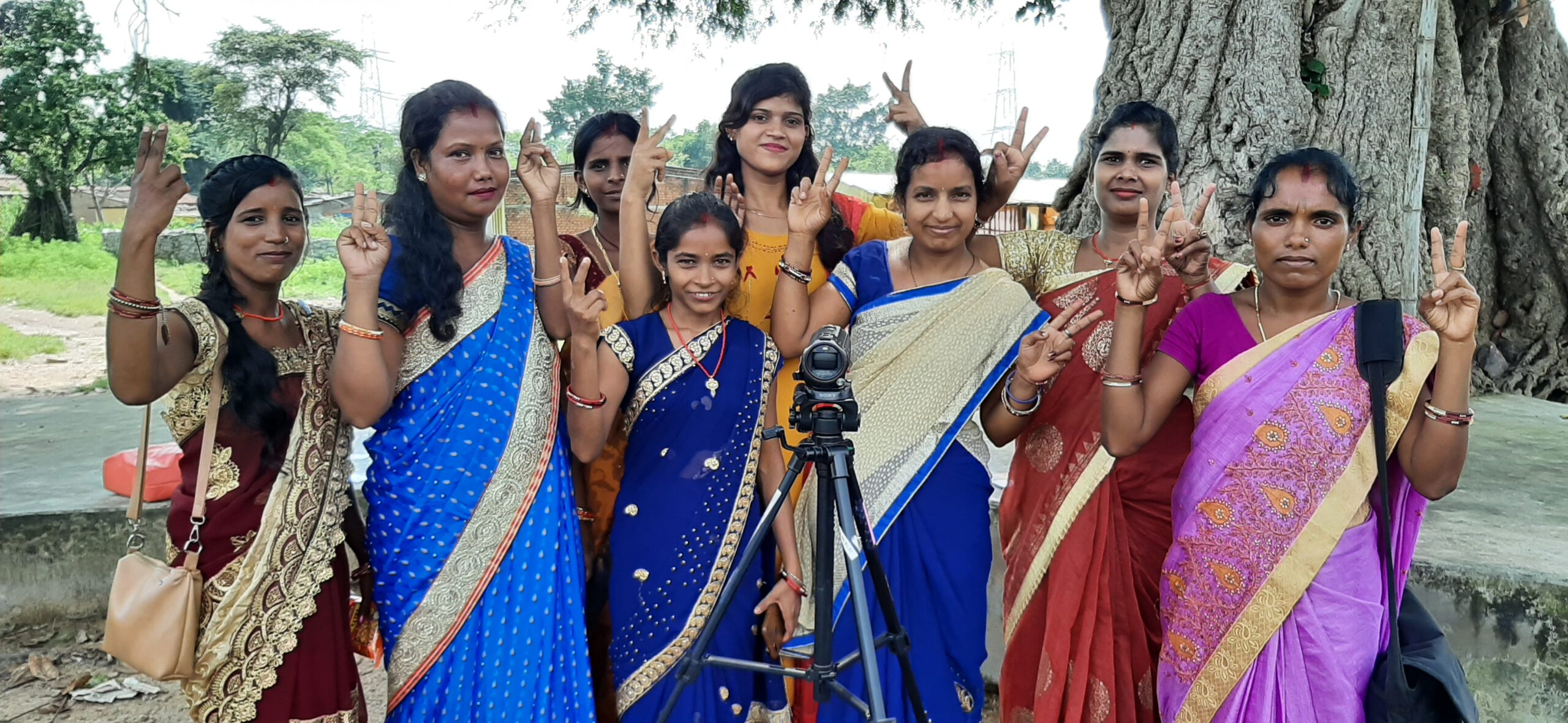 Since 2019, Munita Oraon has been working as an ‘AKM (Ajeevika Krishak Mitra)’ in her village. This role includes mobilizing, and training her community on best agricultural practices. Until a few months ago, a major challenge was that community members did not really apply the practices they learned and there was little buy-in on technology being used for agriculture. Recently, with micro-practice-based community videos, the response has changed. “Community members now believe that what is being shown in the videos is actually applicable and possible in their settings.”
Since 2019, Munita Oraon has been working as an ‘AKM (Ajeevika Krishak Mitra)’ in her village. This role includes mobilizing, and training her community on best agricultural practices. Until a few months ago, a major challenge was that community members did not really apply the practices they learned and there was little buy-in on technology being used for agriculture. Recently, with micro-practice-based community videos, the response has changed. “Community members now believe that what is being shown in the videos is actually applicable and possible in their settings.”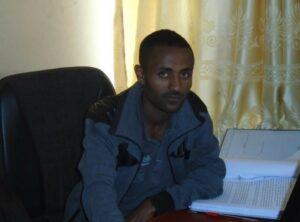
 Tesfu Altaseb, Digital Green field coordinator in Amhara region, says,
Tesfu Altaseb, Digital Green field coordinator in Amhara region, says, 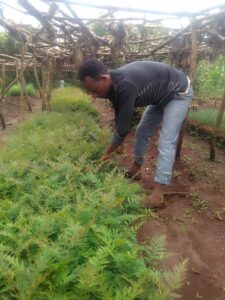



 Our modus operandi includes first and foremost building the capacity of frontline workers in a sustainable and scalable manner. Our teams are trained on adult learning principles and Human-centred Design and while we have very exhaustive in-person training modules, we have been building a strong online component along the lines of a virtual training institute now called Mobile Courseware. Our digital training curriculum combines mobile-based courseware, practical instructional videos that guide and enhance extension agents’ knowledge of the practices.
Our modus operandi includes first and foremost building the capacity of frontline workers in a sustainable and scalable manner. Our teams are trained on adult learning principles and Human-centred Design and while we have very exhaustive in-person training modules, we have been building a strong online component along the lines of a virtual training institute now called Mobile Courseware. Our digital training curriculum combines mobile-based courseware, practical instructional videos that guide and enhance extension agents’ knowledge of the practices.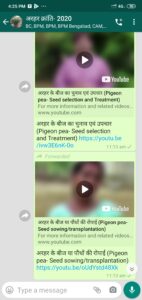 ity meetings (
ity meetings (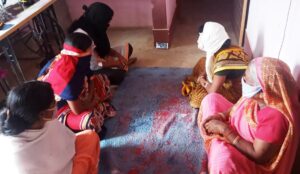 In this project funded by
In this project funded by 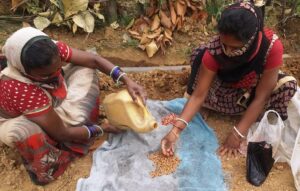 We plan to reach over 40,000 unique farmers during 2020-21, with multiple interventions, including pigeon pea, NPM practices, Agri-Nutrition Garden during this Kharif season and with mustard, wheat and potato during the upcoming Rabi season.
We plan to reach over 40,000 unique farmers during 2020-21, with multiple interventions, including pigeon pea, NPM practices, Agri-Nutrition Garden during this Kharif season and with mustard, wheat and potato during the upcoming Rabi season.